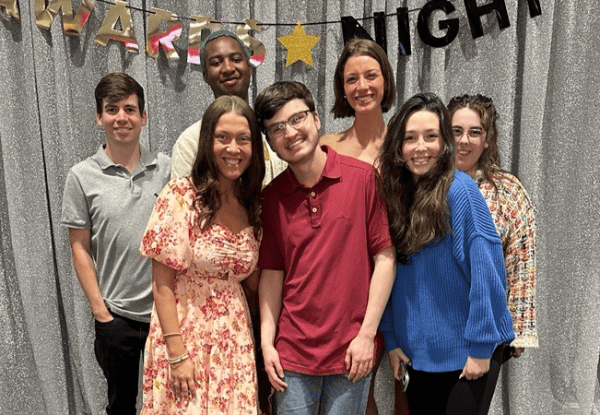Participation challenges our ideals
February 6, 2020
It’s 8:00 in the morning, and you’re propping your eyes open for an obligatory literature survey. It’s enough to have gotten there, and to have done the readings, but the professor enters and asks that dreaded question:
“So what did you think?”
We live with a near-constant fear of seeming stupid. It’s only natural. We’ve tied up our personal worth with being correct. I cried when I failed my first science test in middle school. It felt like an indictment of my brain, like my educational experiment was a failure. I apologized to my teacher for it.
In a world where success is so clearly defined and stratified, we find comfort in knowing the right answers, and in knowing that our superiors know we do. We study for the professor instead of the class. We put in the office-hours time without asking a single question. It helps us know that we’re on a clear track.
So what happens when answers themselves become ambiguous? What happens when our professors throw correctness away? That’s why the participation grade is so panic-inducing. We suddenly can’t succeed anymore. We’re lost.
Many of my friends have expressed this same sentiment. They hated their high school discussion sections because there were no right answers. They felt like the conversations eventually led to dead ends, and that their efforts amounted to nothing. We’re used to building toward a predetermined conclusion with our classroom contributions. It’s neat and functional, but it’s not challenging. We know the rules.
Often times, these participation-heavy classes are housed in the arts and humanities. If the humanities are at all challenging and ambiguous, however, it’s because humanity is so. They seek to understand, not identify and solve. Their professors aren’t arbiters of viability; they’re explorers in an endless, winding cave. Your participation doesn’t hurt, because it can’t. Another light, however weak you might think it, helps illuminate those mysterious recesses.
So when you have to fill that pesky general education credit, that annoying obligation, consider moving outside your comfort zone. It’s in our areas of cautious confusion that the arena of self-conscious correctness crumbles. You’ll find yourself learning other truths and fuller ways of looking at life. It’s liberating.
But, dialogue is a two-way road. Just as you benefit from the thoughts of others, they too benefit from yours. Engaging in discussions creates relationships of mutual feedback. My proudest in-class thoughts have sprung from the minds of my classmates, and vice versa. The unjustly vilified participation grade naturally encourages what college is all about: having your perspectives respectfully challenged.
The next time you find yourself sitting in discussion, anxiously watching your laptop clock every other minute, consider raising your voice. Even if you feel stupid, you’ll find yourself uniquely engaged and excitedly challenged. You’ll break from the lonely cycle of lecture and homework. You’ll make friends and work with your professors empathetically. Participation isn’t a villain; it’s your greatest collegiate ally.
So talk about what you’re thinking. It’s the easiest part of your grade and the most interesting. At the very least, it’ll help those early hours pass.










